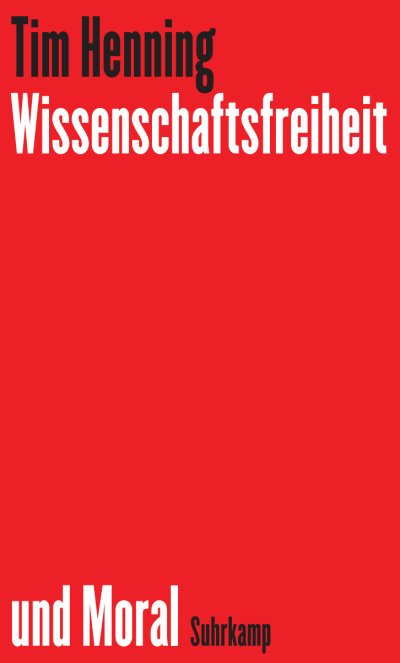Academic Freedom and Morals
In many places around the world, academic freedoms are viewed as being under threat from moralism, intellectual taboos, and ‘cancel culture’. But is moral outrage in the face of certain scholarly positions – for example on genetics and IQ, on gender and biology, or on disabilities and infanticide – always an ideological and paternalistic infringement on what should be an autonomous field? Or can there be legitimate moral critiques of academic theses? Philosopher Tim Henning looks...
In many places around the world, academic freedoms are viewed as being under threat from moralism, intellectual taboos, and ‘cancel culture’. But is moral outrage in the face of certain scholarly positions – for example on genetics and IQ, on gender and biology, or on disabilities and infanticide – always an ideological and paternalistic infringement on what should be an autonomous field? Or can there be legitimate moral critiques of academic theses? Philosopher Tim Henning looks into these questions in this highly topical and original book.
On the one hand, Henning defends a strong conception of academic freedoms, defining academia as an autonomous field of activity that should be respected as such. It should be guided purely by the criteria that arise from the immanent nature of a systematic search for truth – by data and evidence, truth and falsehood. On the other hand, he stresses the possibility of a non-moralistic form of moral critique. He finds evidence of this within the confines of the supposedly pure field of scientific criteria, as recent analyses in the fields of epistemological theory and linguistic philosophy show. It is the practical costs of scholarly errors that prove to be relevant in terms of epistemological theory and morals. As such, the question of whether a thesis is scientifically tenable can be a thoroughly moral one.
»The fact that in the highest offices of government agencies there is uncertainty about the meaning of academic freedom takes the cake. With that in mind, every intelligent contribution to this debate is welcome. And this one is quite intelligent indeed.« Mladen Gladic, DIE WELT
»Henning’s reasoning is indebted to analytical philosophy. He writes lucidly and with a beguiling degree of self-criticism, he provides evidence for every argument and openly discusses pros and cons. He stresses that there are good reasons to be sceptical about his theory and also discusses counterarguments. This is an admirable stance – and one that is unfortunately all too rare, even among many philosophers.« Spektrum der Wissenschaft
»While reading this book, you just don’t want to put it down because you’ve been craving a book like this so deeply. A book that poses one of the big questions of the present moment, wrests it from our dull cultural wars, and attempts to actually provide a serious answer to it instead of just elegantly and pointedly dancing around one.« Lars Weisbrod, DIE ZEIT
»The fact that in the highest offices of government agencies there is uncertainty about the meaning of academic freedom takes the cake. With that in mind, every intelligent contribution to this debate is welcome. And this one is quite intelligent indeed.« Mladen Gladic, DIE WELT
»Henning’s reasoning is indebted to analytical philosophy. He writes lucidly and with a beguiling degree...
